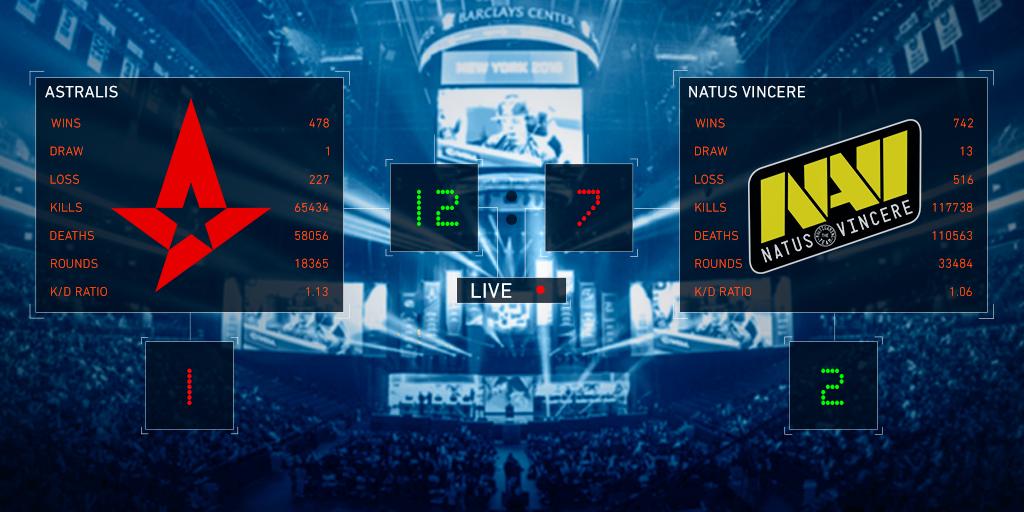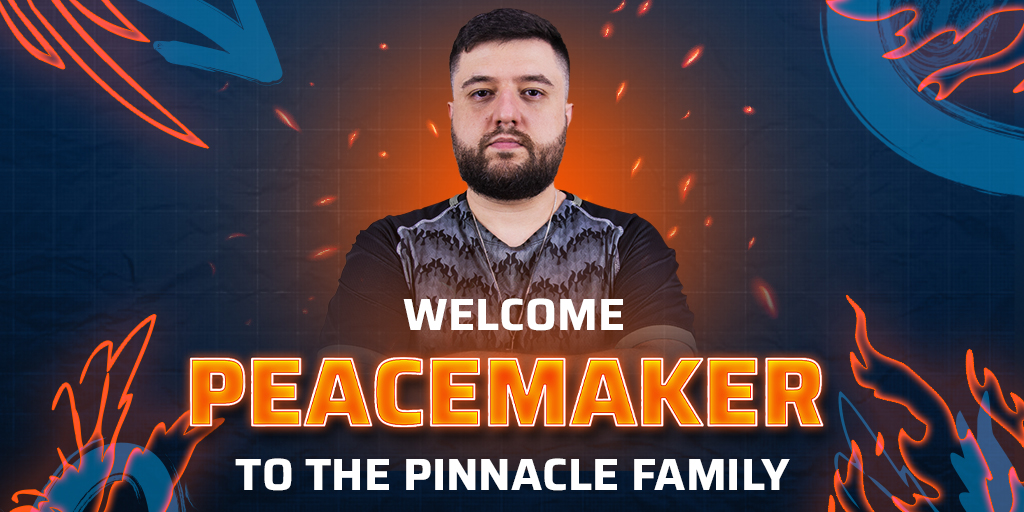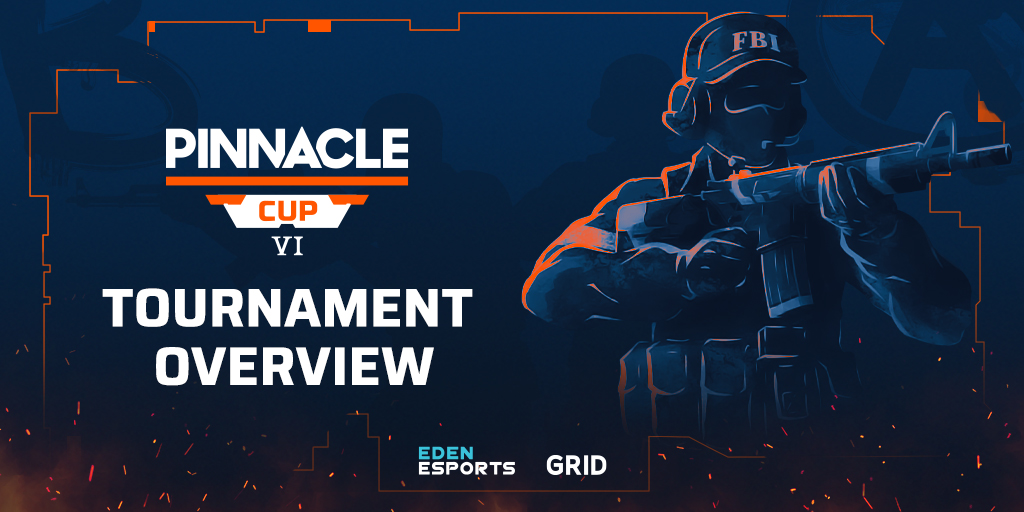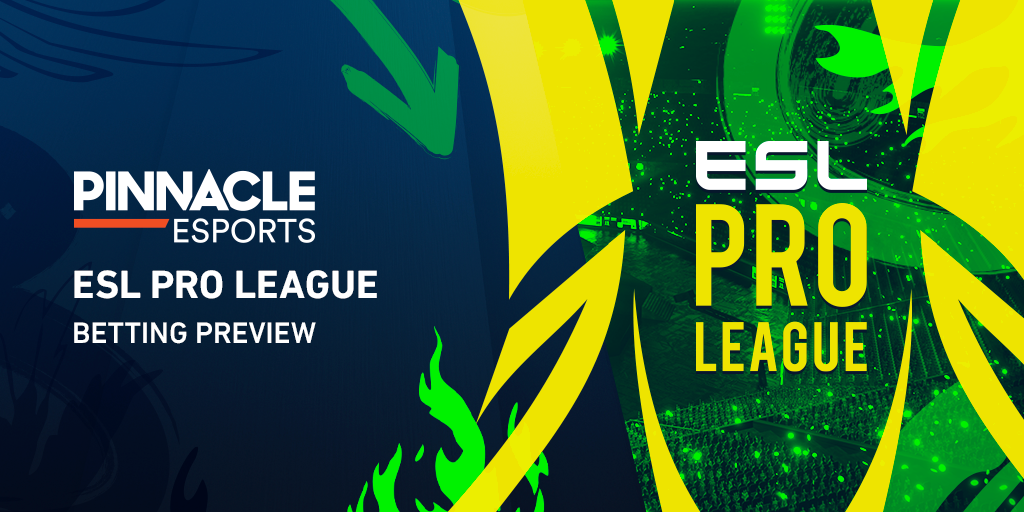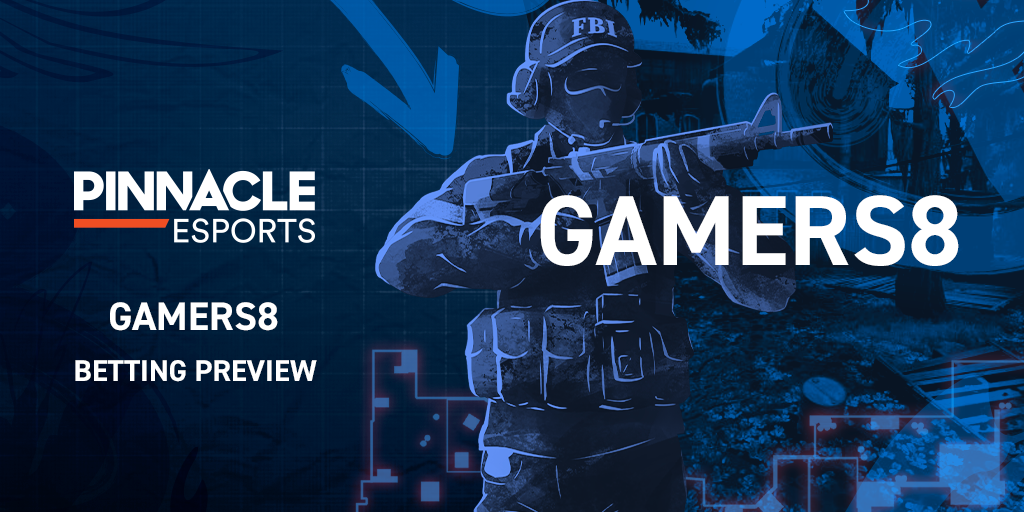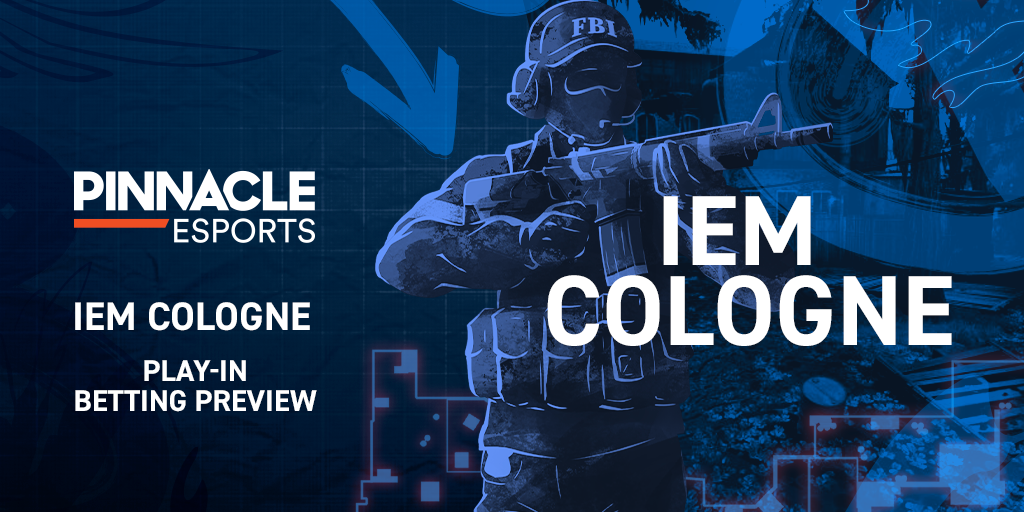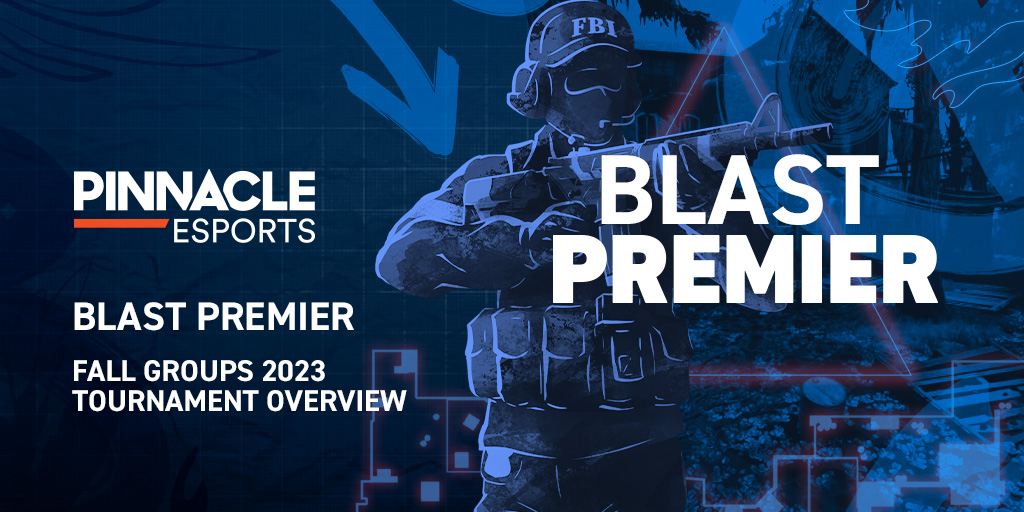The goal of making a CS:GO prediction in betting is to determine the outcome of a Team A vs. Team B match with greater accuracy than bookmaker odds. Predicting CS:GO matches requires an approach that involves greater insight into game mechanics, decision making and tactical play. How can you make accurate CS:GO predictions? Read on to find out more.
Within a CS:GO match there are two teams, Terrorists and Counter-Terrorists (T’s and CT’s) and five players on each team, T’s have to complete the objective of planting the bomb, whilst CT’s have to prevent them from doing . In some instances, a clutch play would be a contributing factor to a team winning a round or even the match, but a clutch performance doesn’t determine a team’s overall skill.
For your own research on the team and data crunching, we offer a variety of event previews in our blog, you can check the CS:GO betting subReddit, and HLTV also provides a breakdown of team stats. You can easily be misled by Team A winning multiple times across a series, when Team B are also capable of the exact same thing.
It’s important to keep the economy in mind when assessing teams that have fallen behind. CS:GO has a unique gameplay mechanic that allows for teams that are losing multiple rounds to close the gap when buying equipment. This is to bring balance to the game by assisting teams that are under-performing. This can also be incorporated into a “for and against” in game strategy.
For example, if a team is now leading by five consecutive games, the round reward for the losing team will be at its highest. Depending on what the team scores are, it may make sense for the winning team to drop a round in order to reset the economy for the losing team, thus ending their loss streak rewards.
INsightful CS:GO ARTICLES
Esports event previews, up to date articles and latest odds
Follow Pinnacle EsportsAnalyse the teams
When predicting CS:GO results, you can get caught up in the narrative surrounding a match. Team A has performed well at X event, therefore they will perform well at this event. Team B won the last Major so must be favourites here, and so on. One thing keep in mind is that when outsiders play against the favourite, they tend to try different strategies throughout the course of the match. This could be an important part of your strategy.
Bettors should be aware that certain teams will change strategies depending on whether they are playing as T’s or CT’s.
One such example of trying out new tactics is Astralis’ use of the grenade push across various different maps. By aiming for camping spots they attempt to take out at least one member of the enemy team or lower their opponents’ health significantly. They also risk missing entirely.
Strategies like this add an element of randomness which can level the playing field between two mismatched teams.
Other factors to consider include player performance, objective control, pistol victories, percentage wins on specific maps and whether a team are playing outside of their region. Instead of trying to analyse every aspect of CS:GO it may be beneficial to find an edge in one specific area .
Home field advantage can seem beneficial but it can prove to be an incredible burden. Danish team Astralis, currently the world’s most successful team , did not make the Grand Final at BLAST Pro Series Copenhagen 2017 or 2018. Granted, this is a very small sample, but given their dominance during that period it is quite surprising that they’ve struggled on home soil.
If the home side team starts to go on a losing spree, they will feel the pressure and the responsibility of trying to please the fans. If they can’t, then they will start to feel frustrated - leading to poor decision-making regardless of the way the game will try to balance the match out.
Keep in mind that while CS:GO teams vary in scope and skill, even a tier one team can have bad days or weeks. In some instances, often when wholesale personnel changes are involved, teams can unravel completely and fall from the elite level to complete unknowns. One such team being Virtus.Pro, runner-up for the ELEAGUE Major: Atlanta 2017 and who have now completely disbanded.
Accounting for roster changes
Looking at one specific performance will not provide you with the most accurate results, as a single roster change can affect entire matches. One such example involved Valens (the team’s usual coach) standing in for Golden at BLAST Copenhagen 2018. In a surprising turn of events, Cloud9 went on to defeat NiP and Na’Vi.
Consider this scenario: You have an individual player that has just joined Team A, and they have a match in a week’s time. Ordinarily, you would presume that they wouldn’t have had time to blend with the team and therefore would underperform.
This, however, may not be the case in every scenario. MiBR topped leaderboards across multiple events shortly after forming. Their main advantage was having a team that was experienced with a wide variety of different online and LAN events.
A good understanding of the impact of a change to a roster could be an advantageous skill when it comes to making CS:GO predictions.
Why a little research can go a long way
Your CS:GO predictions will only be as good as the research behind them. It is important to consider the unique aspects that the game has which can make it stand out from other esports titles. Understanding how the economy, player statistical data, and unpredictability work can give you an advantage.
Roles can also play a big part in your prediction. Bettors could benefit from not only looking at a player’s statistics, but also understanding how the role they play within a match can affect their K/D ratio. It is important to consider that K/D ratio alone does not give an accurate representation of skill or performance level.
Bettors should be aware that certain teams will change strategies depending on whether they are playing as T’s or CT’s.
If you are on a losing streak, it might be worth taking a break from competitive play for the day.
As mentioned before, CT’s are always defending against the T’s in the bomb scenario. It would be imperative for the team on CT’s to find a suitable defensive spot, whereas T’s would need to find a way through the defence. This has an effect on team strategy.
Related to this, the economy plays a big part in a team’s overall strategy. For example, you would more than likely see a team recover or pull off more clutch plays on T’s than you would in a team playing CT, as they receive more income based on a poorer performance.
The importance of maps
If you want to make accurate CS:GO predictions, you will also need to invest some time looking at both team and individual player performance on individual maps. While the game will always remain the same, teams do perform better on certain maps.
Astralis have a 100% win rate on Nuke and Cache over the last six months which would lead you to assume that if those maps are chosen then they have a higher probability of winning. Another team that has a high win rate is Na’Vi, posting consistently positive win rates on Mirage (82%), Train (78%) and Overpass (70%)
Competitive CS:GO map pool
In a Best of 3 (Bo3), all seven competitive maps are available but during the course of the veto process (before the start of the match) there will be three maps left. It is worth checking each competitions veto process beforehand as it will not always have the same AB-AB-AB format, as it can also go AA-BB-BA for the picking and banning of maps.
Also beware that some veto processes can be done a week before the event goes live (allowing for teams to work on their strategy) but they can also be done moments before the match is meant to start.
Knowing the individual players
Keep in mind that some of the unpredictability surrounding CS:GO matches can be attributed to individual players.
Each player has a “tilt” factor, this can happen before an event or during an event. When FaZe failed to make it out of groups at ESL One New York, then in-game leader Karrigan announced on social media that he wasn’t in the correct mental state and he would be coming off the platform.
Tilt, or tilting, is when a player is about to reach the point of no return and they shut down. Researching past statistics on teams and players can provide you with the edge you need in order to avoid becoming a victim of tilting when you bet on a match, more so if you understand how the players react to losing scenarios.
You can also determine from their post-match interviews or social media comments how they are feeling going into the next round. By gauging how they are feeling you can put yourself in a position to make an educated decision on how that individual will perform in the next round or next event.
CS:GO can have multiple events a month with the same teams so if they under performed a week before, chances are they will underperform again. This is because there is not sufficient time to either bounce back from the previous event or to research how they can improve in order to win the match.
Competitive CS:GO teams may play each other regularly and are familiar with the strategies and skill levels of their opponents. When a new team gets added to the mix they could be in with a chance of picking up wins against top tier teams who may not be as prepared for such a match up.
CS:GO can have multiple events a month, if a team under performed one week, chances are they will underperform again.
Larger events such as a CS:GO Major can host up to 24 teams. When such a tournament occurs it provides opportunities for teams of various skill levels to demonstrate what they are capable of.
For example when compLexity and HellRaisers played at the FACEIT London Major 2018, they were not considered as contenders for the Champions Stage, however they managed to cause an upset against teams such as BIG, Cloud9 Fnatic, OpTic Gaming and North.
Assess the quality of your information
It’s easy to get caught up in a world of easily accessible information when you’re making CS:GO predictions and people will often promote ready-made predictions or “tips”. Sometimes you can get insight and understand the reasons behind these predictions, but many others will be opinion based.
People who provide tips (known as tipsters) are not necessarily the most informed or unbiased sources of CS:GO predictions. They are often affiliated with betting companies and take a percentage of losses from players they sign up to sites.
If other people have top level information, then it is unlikely that they would openly give that information away (especially for free) as it may hinder their own betting activity.Odds may change, or bookmakers may become wise to their strategy if it’s adopted by the masses.
There is nothing wrong with researching tipsters and looking at their tips, but CS:GO bettors will be better off investing time and energy into making their own CS:GO predictions.
Knowing when to make your move
So, you’ve done your research, you know how the game works and what might influence the outcome of a match. You might know the difference between a headshot and a top banana, but where do you go from there?
If you want to start making money from your CS:GO predictions, you need to break down the possible outcomes of your prediction into probability and compare them against the bookmakers odds.
Using a hypothetical example, if you estimate that Astralis have a 68% chance of beating MiBR and the bookmaker’s odds are set at 59% then it would be worthwhile place a bet. If, however, the bookmaker’s odds match your prediction then there is little “value” in a bet.
If the bookmaker had Astralis at 73% and NiP at 27% then you would be better of betting on NiP - Astralis are still more likely to win but for the outside chance NiP has, the reward is worth the risk in the long run.
The overall goal of your prediction is to try and defy the odds and take advantage of knowledge that goes beyond that of the betting market, this doesn’t apply to only esports but betting in general.

